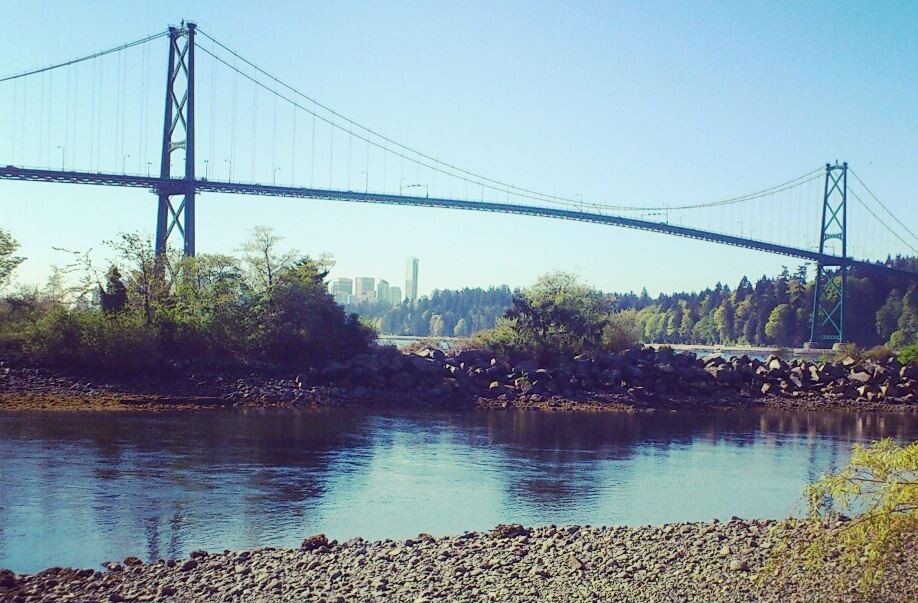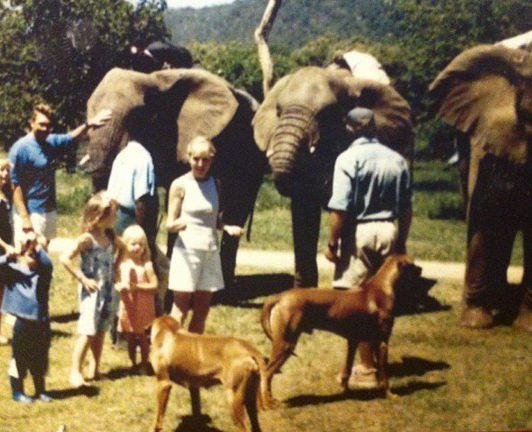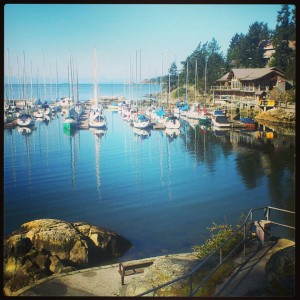“Home is often a a place of refuge, and safety where worldly cares fade and the things and people that one loves becomes the focus” (Korvela 1999)
Before the age of nine, “home” was a static concept to me that was bound to a large pink house in Durban, South Africa. The bougainvillea bushes in the garden and the sparkling blue pool symbolized the vibrancy of the house. I have fond memories of swimming in that pool while watching a brigade of monkeys run along the top of the fence with babies clinging to their backs. On a sticky hot day in March, my little sister was born at the house, joining the ranks of the baby monkeys who symbolized the youthful spirit of the house. With her birth and my own firsts such as learning to read, to swim, and to play the piano, my attachment to the house continually became solidified. I felt an unquestionable sense of belonging supported by generations and generations of my family members that were born and raised in South Africa. I never doubted my identity and felt like a thread permanently woven into the nations fabric.
At the age of nine, my conception of home quickly unraveled when I immigrated to Canada with my family. With six suitcases, we arrived in Vancouver leaving behind a high crime rate and poor job market. My parents enthusiastically promised to create a new “home”, but the process of migration created a feeling of in-betweenness, stuck between “there” and “here”. Mentally, I was stuck back at the pink house, still vividly seeing the monkeys dart across my eyes. I remember my first day of school in West Vancouver, I arrived with a strange accent and a dress not suitable for the weather. I was marked as different and immediately felt like an alien. The new home we moved into was even more alien to me. The grey house was a blank slate, empty of the memories that we weaved in South Africa. The backyard contained large fir trees that housed a mass of black squirrels that continually patrolled the yard. To cope with my homesickness my dreams quickly became my home and acted as a temporary salvation. I dreamed about the pink house and my grandmother’s farm in Zimbabwe. I would wake up thinking I was back on the farm visiting the elephants, and in the canoe that we would take down the crocodile infested river. Over time with making new friends, the memories in my dreams slowly started to become part of the present. By recreating experiences I felt a greater sense of belonging. The same sense of adventurousness I felt canoeing down the river in Zimbabwe was replicated in the forests of Bowen Island were I would participate in thrilling games of hide and seek. With new memories, the house slowly came to life. A calendar of South African sunsets in the kitchen was now intermixed with a hand drawn totem pole that I drew at school. I think that during this time I began to realize that I could have more than one home. After all, it is a fluid concept that can be recreated through nostalgia and collective memory. Places are always connected , because “there” is what creates “here”.
I think that homes live within us, and like a turtle “wherever I go I carry “home” on my back” ( Anzaldúa). My two homes became three this year when I moved to Laguna Niguel, California. I felt a tremendous sense of ease moving here compared to the momentous move from South Africa to Canada. I think that I realized that identity can always be re-constructed, because it doesn’t remain buried in one place. I felt a sense of belonging immediately, because I continued to do what I enjoyed. I think that tradition plays a large part in connecting places of importance. In Vancouver I loved to run on the trails that overlooked the Eagle Harbor Yacht Club. Similarly, in Laguna Niguel I also run on trails. And whenever I am running on the dry terrain and catch a whiff of sea air I am instantly transported back to the trail in West Van.
Works Cited:
Anzaldúa, Gloria. “Excerpts from Borderlands/La Frontera.” WarScapes. N.p., 1997. Web. 5 June 2015.
“Robert Mugabe’s Violent Seizure of White Farms Liberated Zimbabwe’s Agriculture Sector .” International Business Times . Ed. Scoone Ian. N.p., 26 Nov. 2013. Web. 4 June 2015. <http://www.ibtimes.co.uk>.
Waite, LJ, and J Cook. “Belonging among diasporic African communities in the UK: Plurilocal homes and simultaneity of place attachments.” White Rose (2011). Web. 5 June 2015. <http://eprints.whiterose.ac.uk>.





Hi, Sarah! Your post really hit home with me (possible pun intended) since I went through a similar transition when I moved from the Philippines to Canada. I really loved the honesty in your words, that you didn’t sugarcoat the defition of home for you – no segways to how it’s a feeling or it’s connected within us and so forth, but instead you shared what you really felt after landing in a foreign environment, told us how hard it was to adjust and how it took you time to finally feel at home again. It’s just so refreshing and realistic and again, I can relate so much to it. That sense of being different from everyone else before finding your new, second home.
Thank you for sharing!
-Angela Olivares
Hey Angela!
Thanks, I also enjoyed reading your blog post and likewise could relate a lot to the things you discussed. Your story about Christmas back in the Philippines parallels to my Christmas memories at my grandmothers farm in Zimbabwe. The presence of my extended family always made things so exciting, and I find that most of my memories from that age revolve around Christmas. I also come from a family of six, and likewise once we immigrated to Canada, Christmas became very sad and lonely as you described. It was hard to enjoy it, because we didn’t have relatives that lived in Vancouver, or even the same decorations that we would use. Over time of course, celebrating Christmas just with my family has become more and more enjoyable as we expand on the traditions we have created ourselves.
🙂